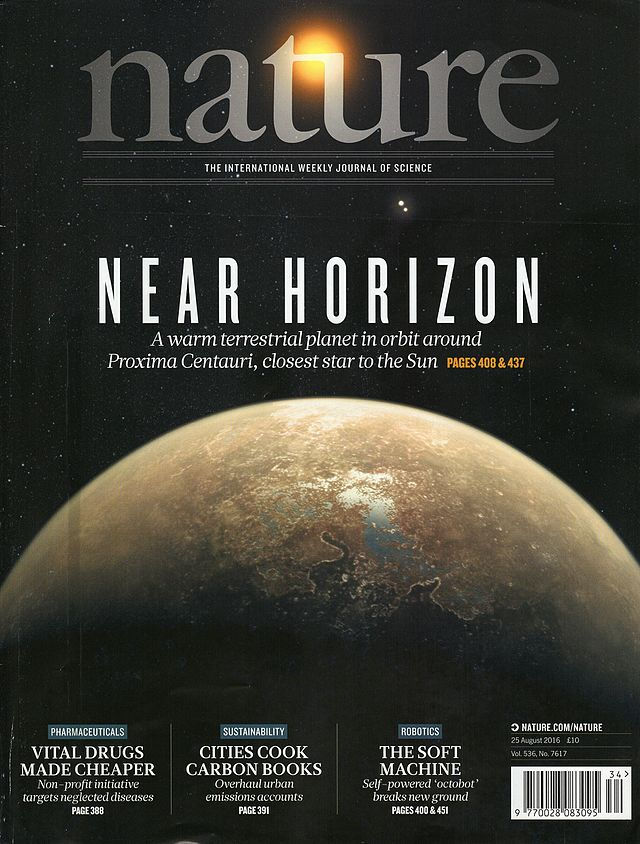When he launched SciPost in 2016, Jean-Sébastien Caux envisioned a non-profit, fee-free alternative to the traditional academic publishing model. Today, a lack of funding threatens to end it all.

Jean-Sébastien Caux didn’t set out to become an open-access publisher.
He completed a PhD in physics at Oxford University, before spending the last 25 years researching various theoretical aspects of low-dimensional quantum condensed matter, ultimately landing a faculty position at the University of Amsterdam. Meanwhile, Caux was inadvertently gaining an education in the academic publishing system, with his frustrations growing alongside his number of publications.
Around 2014, the group Caux led obtained a result that he thought was exceptional and they decided to try to publish it in one of the field’s top journals, such as Nature or Science. They were rejected.
“We started tumbling down from one journal to the next, reformatting the research,” explains Caux. “By the time we were at the fourth journal, I computed the time we had taken to write and rewrite, and it was more time than we’d taken to do the actual research. I thought, ‘This is completely ridiculous.’ We were dealing with referees who judged our work more on lack of marketability than core scientific value, and editors without technical knowledge in charge of making final publication decisions.”
If the contents of referee reports were made public, Caux thought, there’s no chance such non-scientific criteria would keep driving decisions. He started looking into the financial side of publishing as well and grew more vocal in his criticisms. “One of my colleagues eventually said, ‘Either you shut up or you do something about it,’” he recalls. “And I chose the wrong path.”
The birth of SciPost
In early 2016, after about six months of coding and backend web development, Caux launched SciPost, a non-profit, fee-free, and community-owned platform that has been providing open access to scientific publications in various fields over the last 8.5 years.

At SciPost, submitted papers are refereed by members of its editorial colleges, a group of specialists in the field that are publicly available on the SciPost website. Referee reports are open to comments from the authors and the transparency encourages professionalism from all parties.
SciPost takes a different approach to the financial side of publishing as well. Traditional academic journals levy article processing charges on the scientists who publish their work, a model that Caux says makes no sense to anyone outside academia. It would be akin to The New Yorker asking its writers to pay for the privilege of filling its pages.
Furthermore, journals typically send a single invoice to a paper’s corresponding author, regardless of how many researchers were involved in the work.
A no-fee publishing model
SciPost, meanwhile, does not charge any fees. At the end of each year, they look at their costs and the number of papers they published to develop a cost-per-publication metric. For 2023, for example, it cost them €495 to run their entire editorial process for the average publication.
“But we don’t charge that €495 to anybody. That’s just an indicator,” explains Caux. “Then, if I take a certain paper and there are 20 organizations associated with that paper, my little Python script flags these 20 organizations with their fraction of that €495. So, for a given year, you can get a figure representing approximately the expenditures that we’ve had for that organization.”
The idea is that universities and other academic organizations could support an open and equitable publishing structure while spending a small fraction of what they do currently, reinvesting what remains into funding important research. But the choice to do so is completely voluntary and uptake has been slower than Caux hoped.
“There’s one miscalculation I made when I started SciPost,” says Caux. “I totally overestimated the amount of support I’d be able to gather from the academic institutions. We’ve published papers from scientists affiliated with more than 1,200 organizations, yet only 135 have supported us – occasionally too much, most often too little. In terms of budget, I was off by about an order of magnitude, and that’s made things quite difficult.”
SciPost tried to keep its operations as lean as possible. In the early years, Caux was running everything himself – producing manuscripts, checking proofs, often coding at 4 a.m. at the expense of sleep. He estimates he worked on it for 30 hours/week, unpaid, on top of the 45-50 he worked at the university. He’d hoped, after three years of building the site, he’d have the funding to hand it off to a team to scale up. Instead, as it approaches its ninth anniversary, SciPost employs just four full-time staff and is still struggling to pay the bills.
Growth plans

Despite that, they’ve grown from 16 publications in 2016 to 748 in 2023. Caux believes they could reduce their per-paper cost to around €200 if they could increase the staff and further scale their annual publication numbers. In fact, they had plans to do so, in part by significantly expanding their presence in fields like chemistry, biology, and computer science – but those plans had to be shelved due to financial uncertainty.
Lack of ambition has never been an issue at SciPost. In 2018, Caux put forth a vision to develop alternatives to journals like Nature and Science. SciPost Selections, as he calls it, would highlight the best work from SciPost’s journals from the various areas of specialty, as determined by the editorial colleges of referees. It would contain extended abstracts accessible to a Nature- or Science-like audience, but selection would be based on scientific quality rather than what is eye-catching or makes for a splashy headline.

“There’s this reward system in science that is extremely pernicious because people look mostly at where you publish rather than what you publish,” says Caux. “If you score one of the glossy magazines, your students are going to get a follow-up postdoc position.”
That’s great for those students, but he argues that it unfairly favours certain groups, such as large experimental collaborations where “all 25 authors somehow individually get all the credit for all the citations of a single paper.”
SciPost's uncertain future
Unfortunately, it’s difficult to disrupt existing structures when you’re perpetually preoccupied with securing enough funding to survive for the next few months. It all seems to come back to Caux’s miscalculation about how eager academic institutions would be to financially support his model.
“I want publishing to be seen by academic institutions as part of the infrastructure of academia,” explains Caux. “They pay for the desk chair of their scientist. They pay for the electricity. I’d like to view an organization like SciPost as a kind of UNESCO for publishing. We do it charitably and we just make the machine work, so it can easily run at scale for everybody.”
In keeping with the theme of openness, the SciPost website maintains an in-depth tally of “benefitting organizations,” listing each organization’s number of affiliated publications and the status of their financial contributions.
In March, they launched the Sustain Our Services campaign, a not-so-subtle S.O.S. aimed at keeping SciPost afloat. He hopes scientists who publish with SciPost will advocate about the need to support open science to the people that control the pursestrings at their home institutions. But they’re in danger of running out of resources before the end of the year.
“I don’t know what the future holds,” says Caux. “At some point, we might have to sacrifice our principles and say, ‘You know what? Your organization is a repeat offender. We’re not allowing submissions from scientists from these institutions until they catch up with support.’ But it would break my heart because the whole point of SciPost is not to do that. Perhaps it would then be best to shut down, and view SciPost as an ephemeral demonstration of an ideal that failed the sustainability challenge.”
Interested in supporting SciPost's mission? More information is available on their website.



